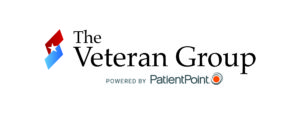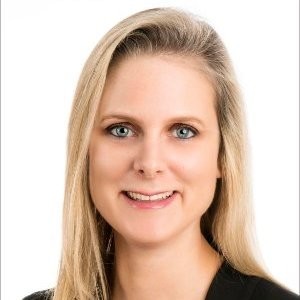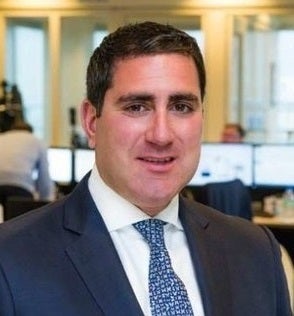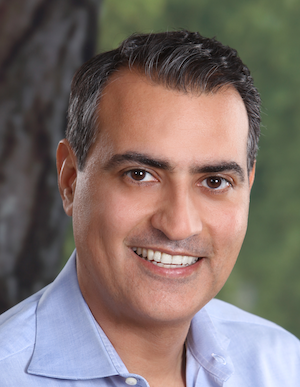 PatientPoint®, the trusted leader in patient and physician engagement solutions, is partnering with The Veteran Group to offer award-winning point-of-care education to Veterans Affairs (VA) and other federal healthcare provider facilities. The Veteran Group is a VA-certified, Service Disabled Veteran Owned Small Business that provides information technology and business management consulting and solutions to the VA and other federal healthcare partners. Through this partnership, The Veteran Group will install and deploy PatientPoint products among VA and other government and commercial customer facilities.
PatientPoint®, the trusted leader in patient and physician engagement solutions, is partnering with The Veteran Group to offer award-winning point-of-care education to Veterans Affairs (VA) and other federal healthcare provider facilities. The Veteran Group is a VA-certified, Service Disabled Veteran Owned Small Business that provides information technology and business management consulting and solutions to the VA and other federal healthcare partners. Through this partnership, The Veteran Group will install and deploy PatientPoint products among VA and other government and commercial customer facilities.
 The Department of Health and Human Services (HHS) announced the availability of $195 million in a new funding opportunity for community health centers to expand access to mental health and substance abuse services focusing on the treatment, prevention and awareness of opioid abuse in all U.S. states, territories and the District of Columbia. The awards are expected to be made in September of this year. Health centers that receive an award will use the funds to increase the number of personnel dedicated to mental health and substance abuse services and to leverage health information technology and training to support the expansion of mental health and substance abuse services and their integration into primary care.
The Department of Health and Human Services (HHS) announced the availability of $195 million in a new funding opportunity for community health centers to expand access to mental health and substance abuse services focusing on the treatment, prevention and awareness of opioid abuse in all U.S. states, territories and the District of Columbia. The awards are expected to be made in September of this year. Health centers that receive an award will use the funds to increase the number of personnel dedicated to mental health and substance abuse services and to leverage health information technology and training to support the expansion of mental health and substance abuse services and their integration into primary care.
 BookZurman recently worked to acquire International Standard for Organization (ISO) status, specifically achieving the ISO/IEC 20000 certification. Internationally agreed upon by experts, ISO standards are formed in response to a need in the market, developed through a multi-stakeholder process, based on global expert opinion, and grounded on a consensus approach. “As a healthcare standards and interoperability consulting firm, everything we do is connected to the power of standards. ISO certification showcases how seriously we take standards in all areas of our work,” said President Brian Book.
BookZurman recently worked to acquire International Standard for Organization (ISO) status, specifically achieving the ISO/IEC 20000 certification. Internationally agreed upon by experts, ISO standards are formed in response to a need in the market, developed through a multi-stakeholder process, based on global expert opinion, and grounded on a consensus approach. “As a healthcare standards and interoperability consulting firm, everything we do is connected to the power of standards. ISO certification showcases how seriously we take standards in all areas of our work,” said President Brian Book. Medsphere Systems Corporation...today announced that healthcare information technology advisor and investor Emma Cartmell has joined the company's board of directors. Cartmell is the former chief operating officer for NantHealth and is currently a managing director at Cappello Group, a global M&A investment bank, and a member of Morgan Stanley's Equity Expansion Fund advisory board. "I'm very excited about the opportunity to contribute to Medsphere's mission and goals," said Cartmell. "At this point, the global healthcare ecosystem is looking for comprehensive solutions the can be implemented at a reasonable cost, which is essentially Medsphere's mission statement. I look forward to working with company leadership and the board to expand company products and services that don't ask healthcare providers to choose between technology and patient care initiatives."
Medsphere Systems Corporation...today announced that healthcare information technology advisor and investor Emma Cartmell has joined the company's board of directors. Cartmell is the former chief operating officer for NantHealth and is currently a managing director at Cappello Group, a global M&A investment bank, and a member of Morgan Stanley's Equity Expansion Fund advisory board. "I'm very excited about the opportunity to contribute to Medsphere's mission and goals," said Cartmell. "At this point, the global healthcare ecosystem is looking for comprehensive solutions the can be implemented at a reasonable cost, which is essentially Medsphere's mission statement. I look forward to working with company leadership and the board to expand company products and services that don't ask healthcare providers to choose between technology and patient care initiatives." In the summer of 2022, the UK government and NHS England published its Open Source Policy, stating that open source technology is: Particularly suitable for use within the healthcare industry where, through active collaboration between IT suppliers and user/clinicians communities, solutions can be honed to maximise benefits to delivery of health and social care. The public statement by NHS England is just the latest development in a broader trend: The wholehearted embrace of open source software by the healthcare sector. And no wonder; open source presents myriad opportunities for this most complex of industries, with potential solutions across various sub-sectors. Yes, open source is now powering everything from medical wearables to healthcare human resource management.
In the summer of 2022, the UK government and NHS England published its Open Source Policy, stating that open source technology is: Particularly suitable for use within the healthcare industry where, through active collaboration between IT suppliers and user/clinicians communities, solutions can be honed to maximise benefits to delivery of health and social care. The public statement by NHS England is just the latest development in a broader trend: The wholehearted embrace of open source software by the healthcare sector. And no wonder; open source presents myriad opportunities for this most complex of industries, with potential solutions across various sub-sectors. Yes, open source is now powering everything from medical wearables to healthcare human resource management. One of the most dramatic shifts in recent years that is empowering epidemiologists to be more effective at their jobs is occurring due to improvements in data technologies. In the past, the old "relational" data model dictated that data had to be highly structured, and as a result treated in distinct silos. This made it difficult, if not impossible, to analyze data from multiple sources to find correlations. Epidemiologists would spend many minutes or even hours on each query they ran to get results back, which is unacceptable when you need to test dozens of hypotheses to try to understand and contain a fast-moving outbreak. (Imagine how you would feel if each one of your Google searches took 45 minutes to return!) By contrast, using newer technologies, the same queries on the same hardware can run in seconds.
One of the most dramatic shifts in recent years that is empowering epidemiologists to be more effective at their jobs is occurring due to improvements in data technologies. In the past, the old "relational" data model dictated that data had to be highly structured, and as a result treated in distinct silos. This made it difficult, if not impossible, to analyze data from multiple sources to find correlations. Epidemiologists would spend many minutes or even hours on each query they ran to get results back, which is unacceptable when you need to test dozens of hypotheses to try to understand and contain a fast-moving outbreak. (Imagine how you would feel if each one of your Google searches took 45 minutes to return!) By contrast, using newer technologies, the same queries on the same hardware can run in seconds.